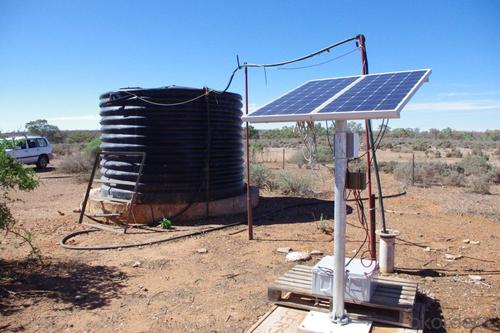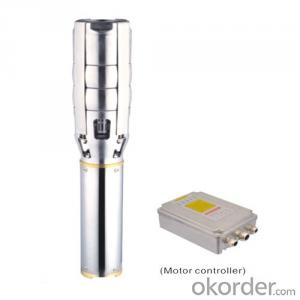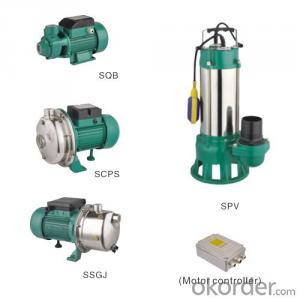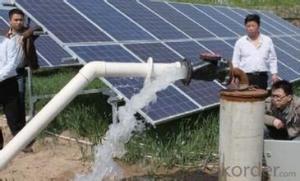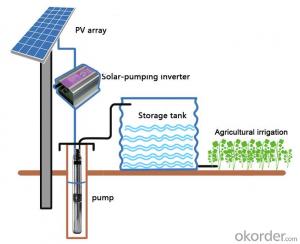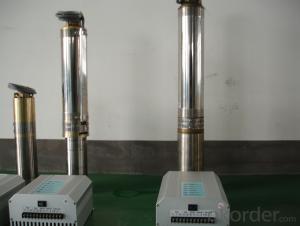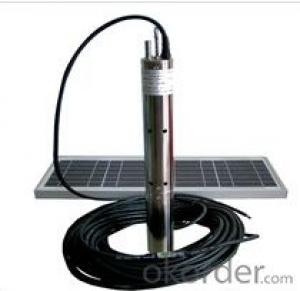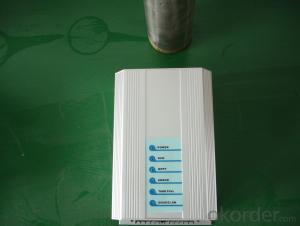Harbor Freight DC Solar Screw Water Pump
- Loading Port:
- Shanghai
- Payment Terms:
- TT OR LC
- Min Order Qty:
- -
- Supply Capability:
- 300 set/month
OKorder Service Pledge
OKorder Financial Service
You Might Also Like
how is the rotor made:
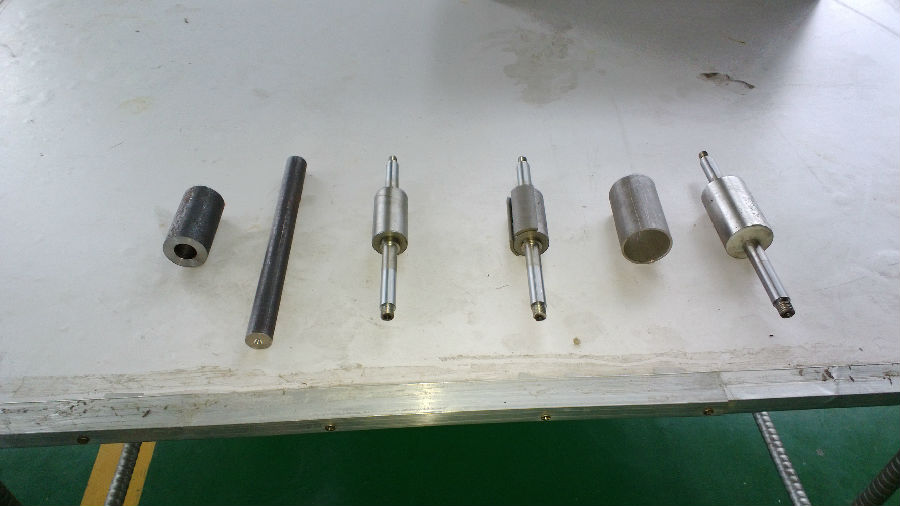
how is the motor made:
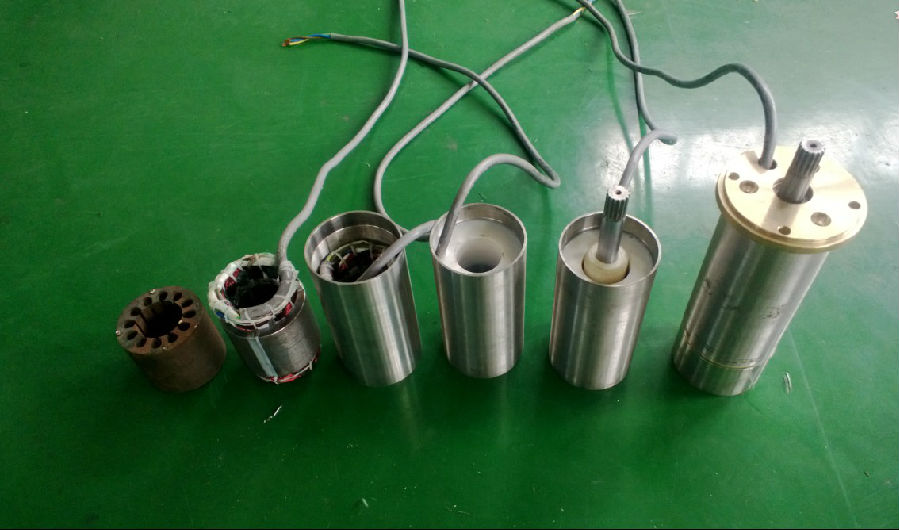
the pump :
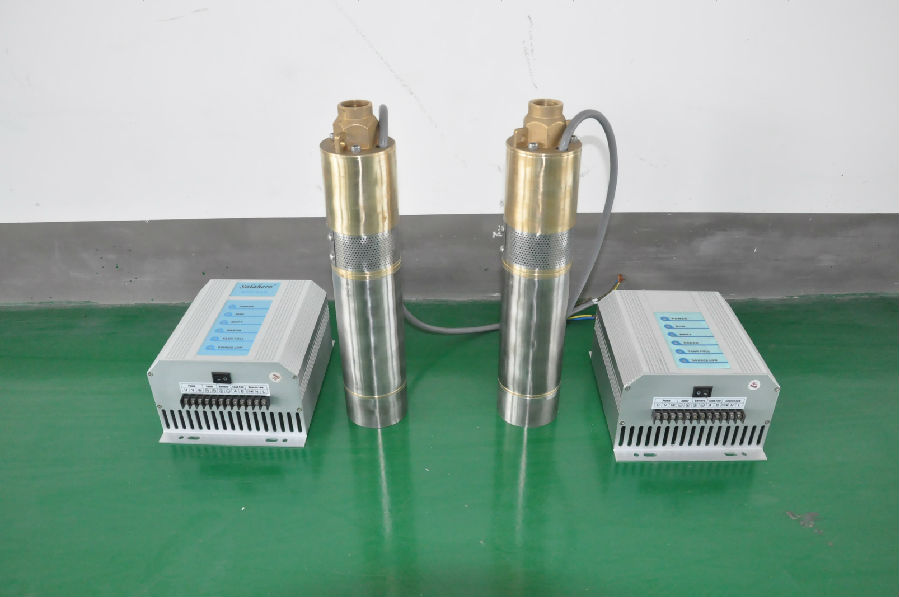
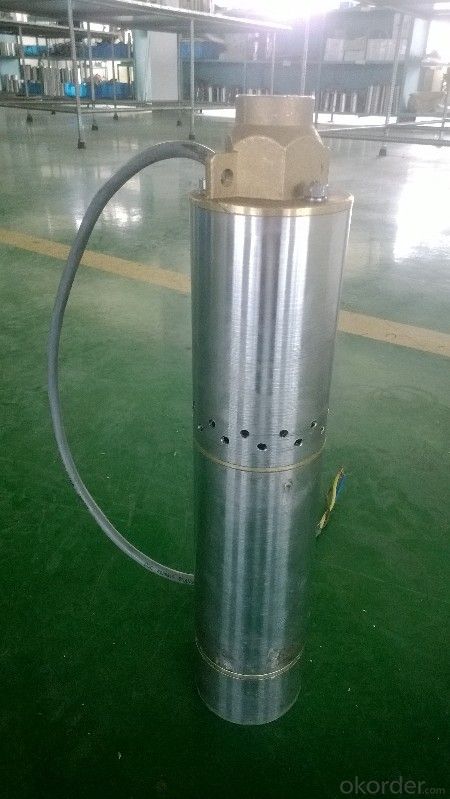
controller terminal connection:
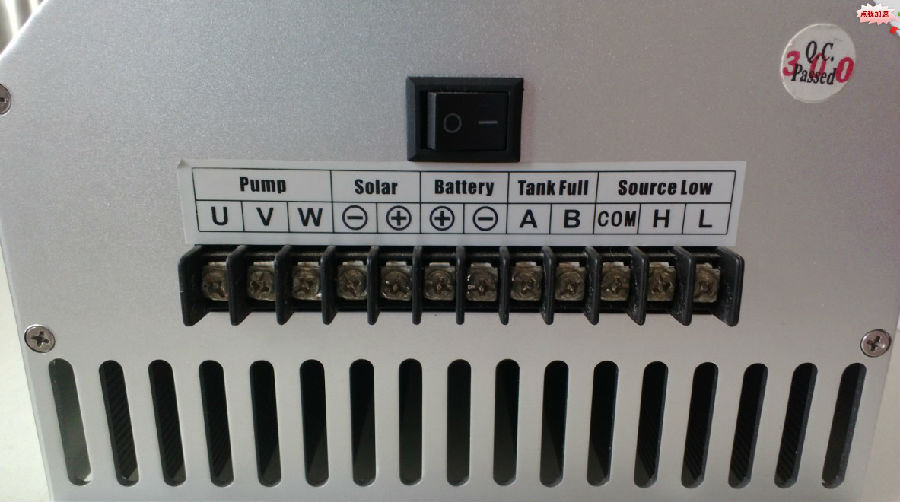
Motor 24V:
1 matainance-free brushless DC motor
2 water filled
3 premium materials,Stainless steel SS304
4 no electronic in the motor
rated power:0.1-0.15kw
effiency:more than 95%
motor speed:1750rpm
isulation class:F
enclousre class:IP68
submersion: max 250m
Controller SPC200:
power:max.150w
input voltage:max.36V
motor current:max.8A
effiency:max.95%
ambient Tem:-20C-----50C
enclosure:IP54
The permanent magnet:
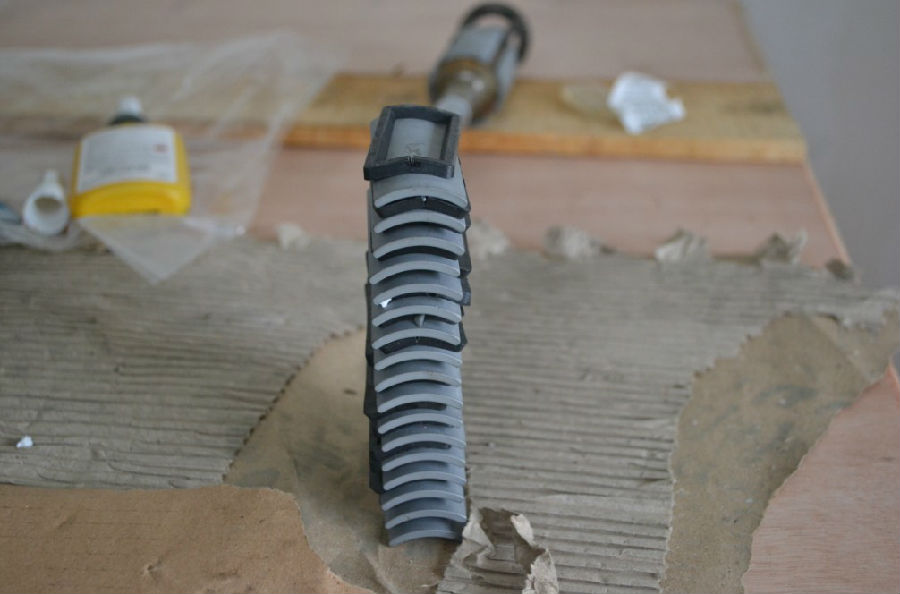
the helical screw:
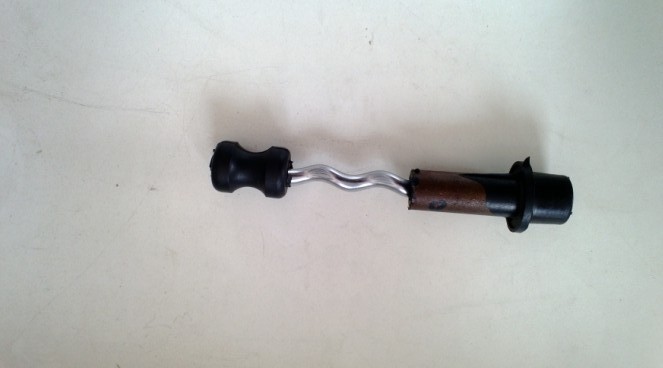
controller box:
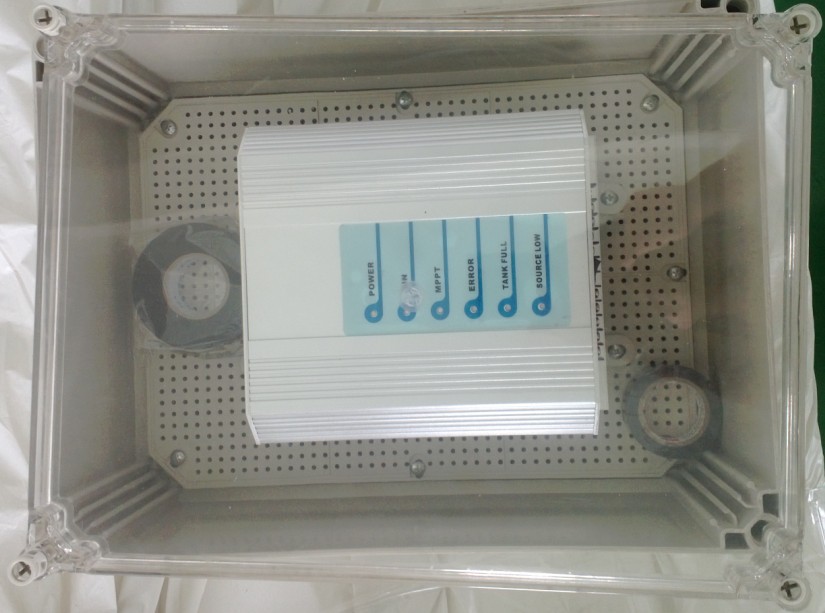
the senors:
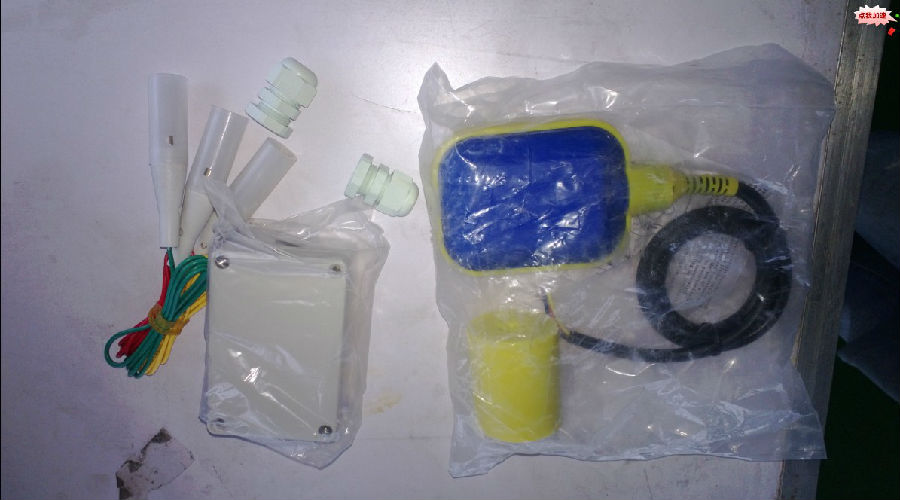
the test:
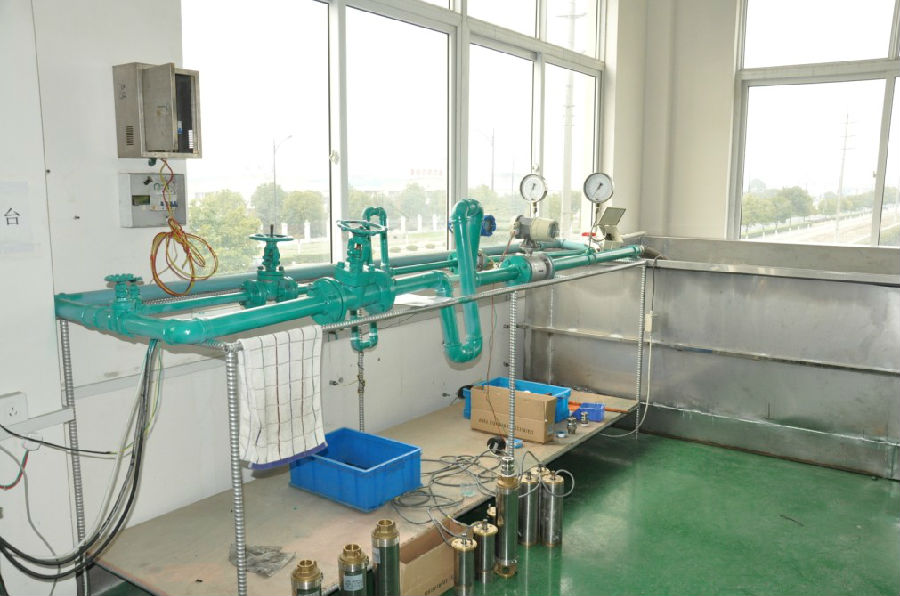
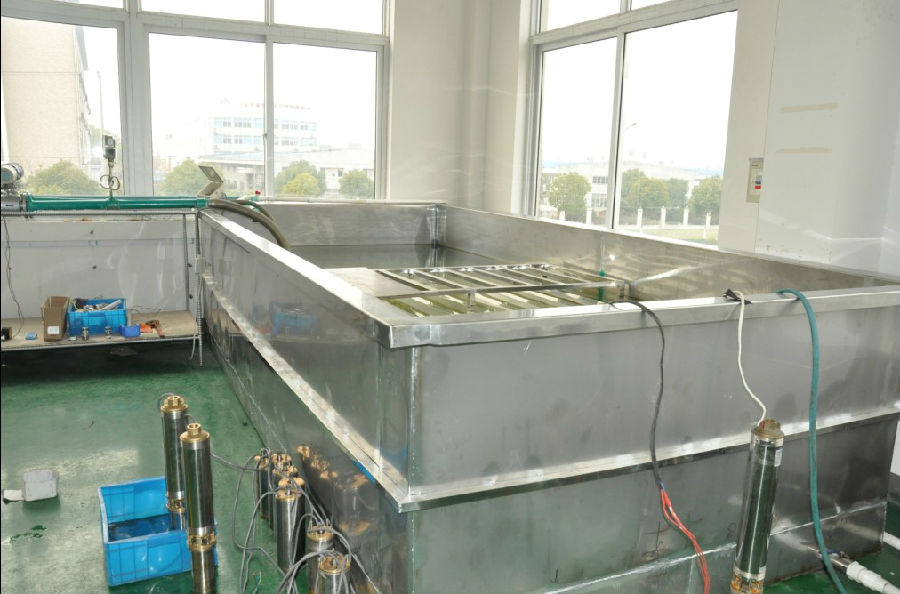
the application:
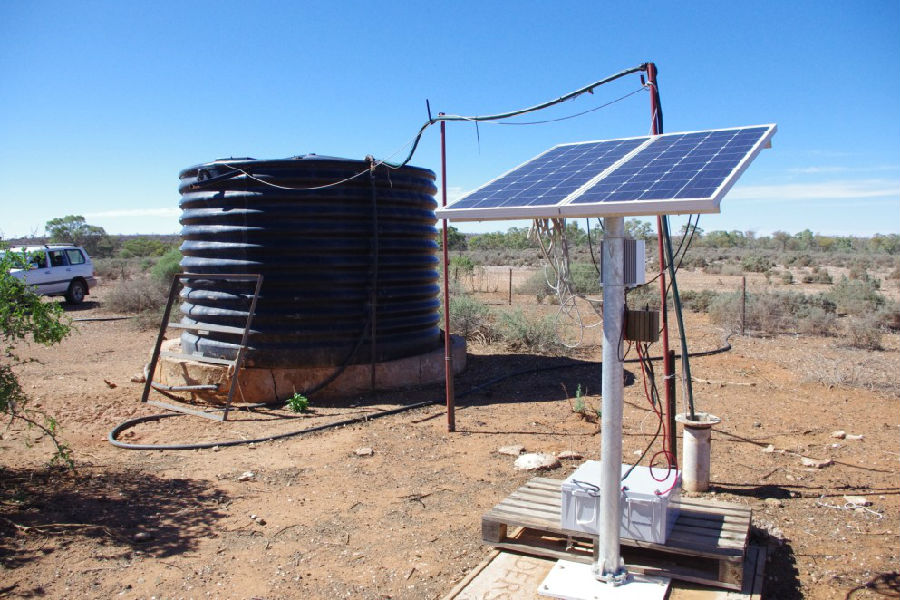
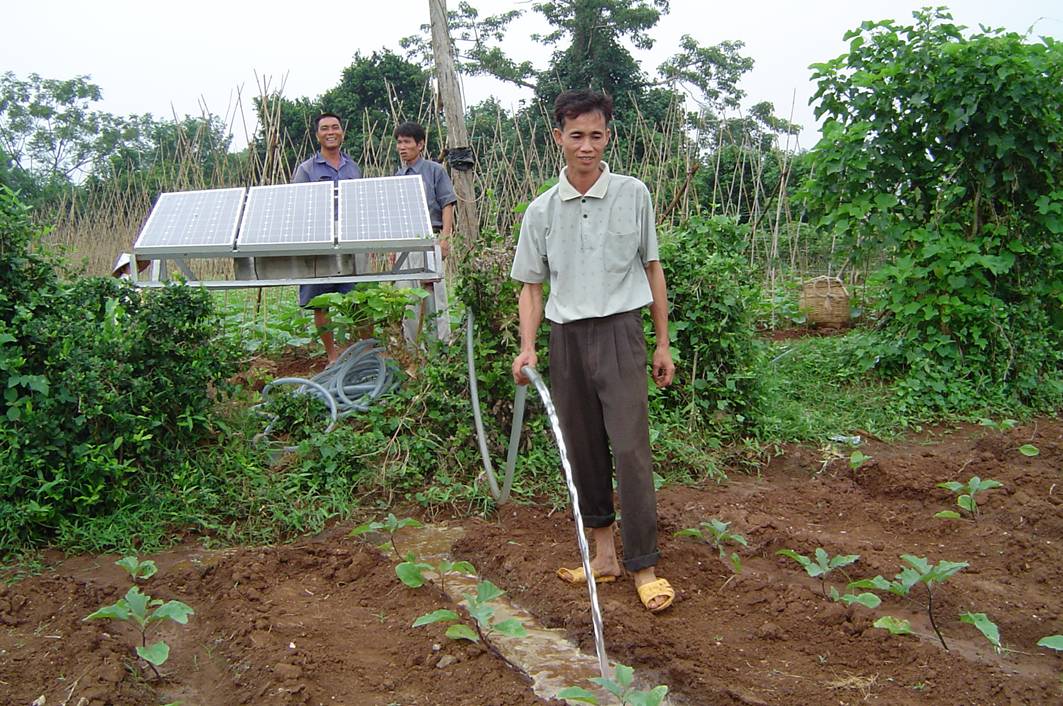
the package:
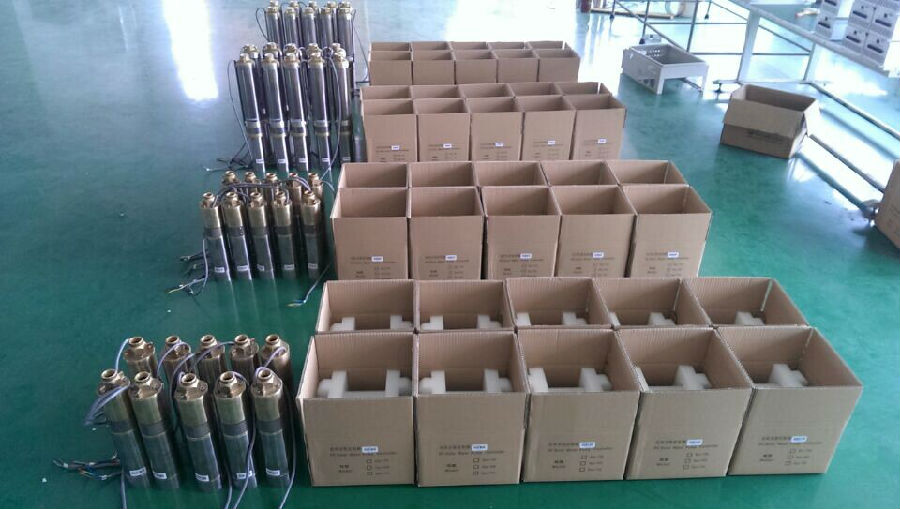
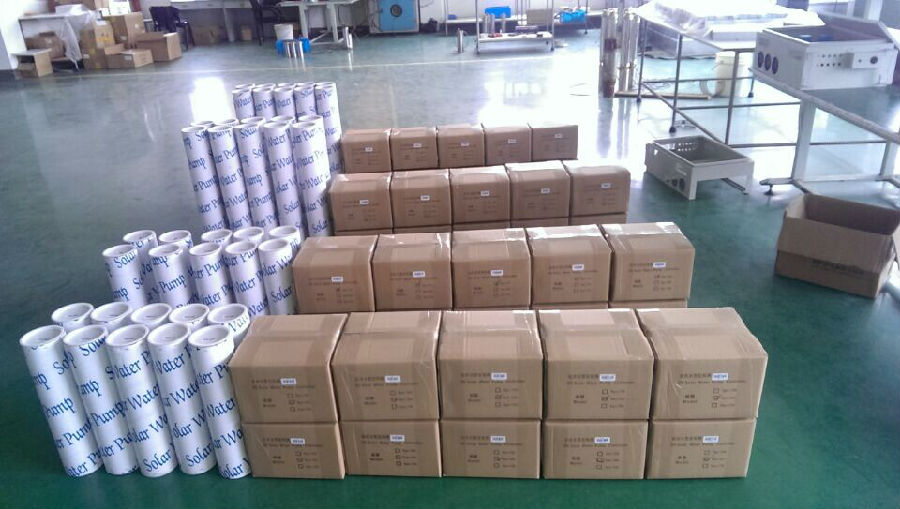
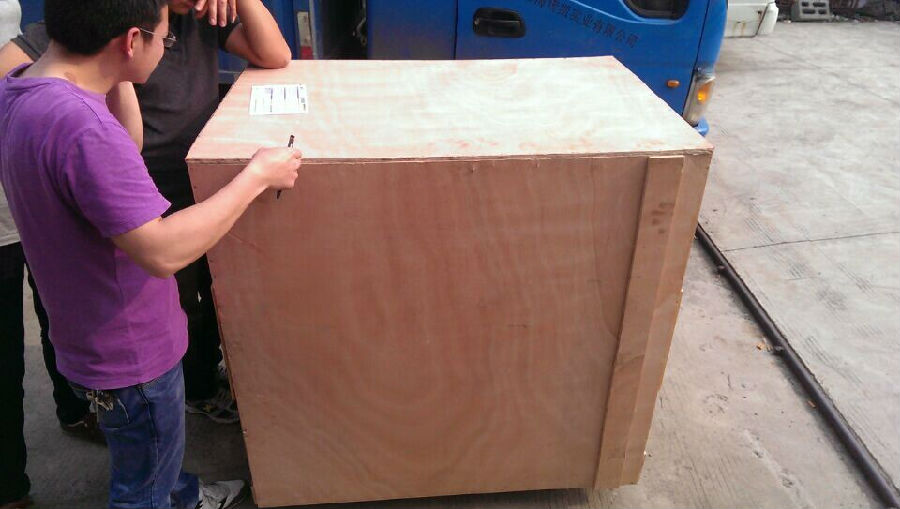
- Q: Solar water heater before the booster pump is now changed into tap water how to get
- You can then install a water tank on the top of the three, you still have to use the water pump to the water tank inside, so the effect is the same, might as well not change.
- Q: How does a solar pump handle water source depletion or drought conditions?
- A solar pump does not have any specific mechanism to handle water source depletion or drought conditions. However, it relies on the availability of water in the source it is connected to. If the water source becomes depleted or experiences drought conditions, the solar pump will be unable to extract water effectively. In such scenarios, alternative water sources or conservation methods need to be considered to ensure water availability.
- Q: Can a solar pump be used in saltwater applications?
- Indeed, a solar pump is capable of being utilized in saltwater scenarios. Nevertheless, it is imperative to opt for a solar pump that has been explicitly engineered for saltwater usage. Traditional pumps might lack the necessary mechanisms to withstand the corrosive properties of saltwater, resulting in harm and reduced functionality. Saltwater solar pumps are typically crafted using materials like stainless steel or plastic, which are resistant to corrosion. Furthermore, these pumps may incorporate special features to prevent blockage or buildup caused by saltwater. Consequently, selecting a solar pump that has been specifically designed and rated for saltwater applications is crucial to guarantee optimal performance and longevity.
- Q: Are there any restrictions on using a solar pump in agriculture?
- Yes, there can be certain restrictions on using a solar pump in agriculture. Some potential limitations include the availability of sunlight, which can affect the efficiency of the pump, especially in regions with frequent cloudy or rainy weather. Additionally, the initial cost of installing a solar pump can be higher compared to traditional pumps, which may pose financial constraints for some farmers. It is also important to consider the size and capacity of the solar pump, as it may not be suitable for large-scale irrigation needs.
- Q: What is the maximum suction depth of a solar pump?
- The maximum suction depth of a solar pump can vary depending on the specific model and design. However, in general, solar pumps are capable of achieving suction depths of up to 30 feet (9 meters) or more, depending on the specific pump's specifications and the conditions of the installation site.
- Q: Can a solar pump be used for water supply in a remote research facility?
- Yes, a solar pump can be used for water supply in a remote research facility. Solar pumps are an efficient and sustainable solution for remote locations where access to electricity may be limited. They can effectively draw water from a well or any other water source and supply it to the facility, providing a reliable and environmentally friendly water supply.
- Q: Can a solar pump be used for water purification purposes?
- Yes, a solar pump can be used for water purification purposes. Solar pumps can be used to extract water from various sources such as wells, rivers, or lakes. This water can then be treated or purified using appropriate water purification techniques such as filtration, UV sterilization, or chemical disinfection. The use of solar energy to power the pump ensures a sustainable and environmentally friendly solution for water purification.
- Q: Are there different types of solar pumps?
- Yes, there are different types of solar pumps available in the market. Some common types include submersible solar pumps, surface solar pumps, and floating solar pumps. These pumps are designed to cater to different water pumping needs and can be used for various applications such as irrigation, livestock watering, and water supply.
- Q: How does the elevation of the water source affect the performance of a solar pump?
- The elevation of the water source can significantly affect the performance of a solar pump. The elevation determines the vertical distance that the water needs to be lifted, which directly impacts the amount of energy required by the pump to overcome this elevation. When the water source is located at a higher elevation, the pump needs to work against gravity to lift the water to the desired height. This means that more energy is needed to overcome the additional head pressure, resulting in decreased pump performance. The higher the elevation, the more energy the solar pump needs to generate to lift the water effectively. On the other hand, if the water source is closer to the surface or at a lower elevation, the pump has to exert less energy to lift the water, resulting in improved performance. The pump can work more efficiently, requiring less energy from the solar panels to achieve the desired flow rate. It is important to consider the elevation of the water source when selecting a solar pump system. The pump's capacity and power rating should be suitable for the specific elevation requirements to ensure optimal performance. Additionally, the solar panels' capacity should be determined based on the energy needed to overcome the elevation, ensuring that sufficient power is available to run the pump effectively. In summary, the elevation of the water source directly affects the performance of a solar pump. Higher elevations require more energy and can decrease pump performance, while lower elevations allow for improved efficiency and better pump performance. Proper consideration of the water source's elevation is crucial in designing and selecting a solar pump system.
- Q: Are there any limitations to the type of terrain a solar pump can be installed on?
- The installation of a solar pump comes with certain limitations regarding the terrain it can be placed on. One primary constraint is the availability of direct sunlight. Since solar pumps rely on solar panels to generate electricity, they need an adequate amount of sunlight to operate at their best. If the installation site is heavily shaded or obstructed by tall buildings, trees, or other structures, it may not receive enough sunlight to effectively power the solar pump. Another limitation involves the stability and levelness of the terrain. Solar pumps are usually installed on the ground or mounted on a structure like a pole or a roof. It is crucial to ensure that the installation site is stable and capable of supporting the weight of the pump and its components. If the terrain is uneven or prone to shifting, it may not be suitable for a solar pump installation. Moreover, the accessibility of the installation site can also pose limitations. In challenging terrains such as remote or mountainous areas, transporting the necessary equipment and materials for installing the solar pump can be difficult. Additional logistical considerations and costs may come into play in such cases. Furthermore, the type of soil or ground conditions can also impact the installation of a solar pump. For example, rocky or hard soil may require specialized drilling or anchoring techniques, leading to increased installation complexity and cost. Similarly, areas prone to flooding or high water tables may necessitate additional measures to safeguard the solar pump system from water damage. In conclusion, while solar pumps offer a versatile and sustainable solution for water pumping, careful attention to the terrain is crucial to ensure optimal performance and long-term functionality.
Send your message to us
Harbor Freight DC Solar Screw Water Pump
- Loading Port:
- Shanghai
- Payment Terms:
- TT OR LC
- Min Order Qty:
- -
- Supply Capability:
- 300 set/month
OKorder Service Pledge
OKorder Financial Service
Similar products
Hot products
Hot Searches
Related keywords


